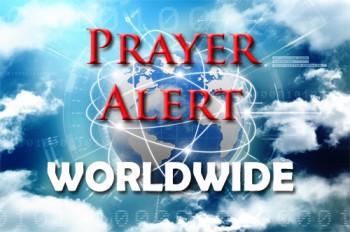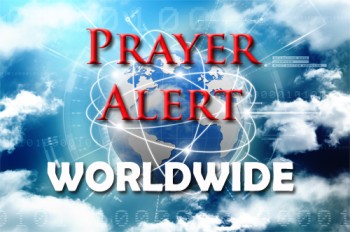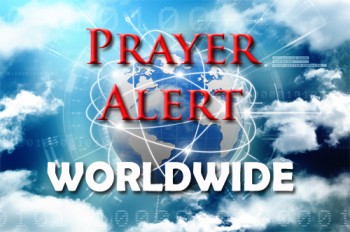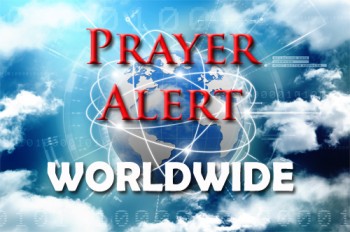Displaying items by tag: Corruption
Sanctioned elsewhere but not by the UK
There are several individuals being sanctioned by other nations but not by the UK. Oleg Deripaska was sanctioned by America for money laundering, ordering the murder of a business rival, illegally wiretapping government officials, extortion, racketeering and bribing government officials. He owns 45% of an aluminium company listed on the London Stock Exchange, and former Conservative energy minister Lord Barker is its executive chairman. The Russian state-owned VTB bank was suspended from the Stock Exchange but Andrey Kostin, president of the bank, is not sanctioned. Victor Zolotov, also on the EU's list but not UK's, leads Russia's national guard. His family is one of the richest in Russia in the real estate sector, with property portfolios in the UK. Pro-Kremlin billionaire Alisher Usmanov founded Russian-based USM which owns major iron, steel and copper suppliers and a telecommunications company, and has commercial ties to Everton Football Club (which has suspended its sponsorship contracts with USM).
Kazakhstan: corruption
Kazakhstan’s ongoing civil unrest shows the need for meaningful progress against corruption. Last week there were countrywide protests over inequality, poverty and corruption, also calling for meaningful reforms. The wealth the country’s political elite have amassed through corruption has been a particular concern throughout the protests. Kazakhstan has made some progress in fighting corruption in recent years - in a 2019 study people and small businesses saw things improving on the ground - but serious concerns remain, such as the flawed anti-corruption framework, lack of responsiveness in policy-making, and state control of the media. Pray for the UN High Commissioner for Human Rights and other independent voices who are urging the government to resolve the ongoing unrest peacefully. Unless the violence stops immediately, the way out of the crisis is uncertain for the already struggling Kazakh society.
South Africa: after Tutu
Archbishop Desmond Tutu’s funeral was on 1 January. He was a driving force behind ending racial segregation and discrimination in an era when South Africa taught the world what courage and reconciliation could achieve. The contrast between those times of sacrifice, justice and glory, and today's corrupt political realities are stark. Deep economic frustration, high unemployment and inequality is governed by the African National Congress (ANC), which is at open war with itself and full of corruption. The day after Tutu’s funeral a fire severely ravaged much of the houses of parliament, causing ‘significant damage’ to the new assembly wing, including the National Assembly chamber where lawmakers sit. While firefighters were still working on ‘hotspots’ further flames erupted, threatening to cause the entire structure to collapse. We can pray that as men rebuild the houses of parliament, God will raise up and anoint political and community leaders to repair the damage done by mismanagement and corruption.
Politics and corruption
After speaking on climate change Boris Johnson told the media he ‘genuinely believes the UK is not a corrupt country’. But sleaze accusations continue. MPs' second jobs are under scrutiny after Owen Paterson was found to have broken lobbying rules. Questions are raised about the Conservative MP and former attorney general Sir Geoffrey Cox who earned around £900,000 last year through his work as a lawyer, while International trade secretary Anne-Marie Trevelyan said it would be ‘wise’ to review the rules around second jobs. Although MPs are allowed second jobs, they are not allowed to use taxpayer-funded resources, or premises, to do so; this rule is being broken consistently. Meanwhile MP Andrew Bowie has decided to take a step back from his role of Tory vice-chair and focus on his constituency where he holds a narrow majority of 843 votes. A friend was quoted saying, ‘He doesn’t want to make a fuss but he’s unable to support the Government after the sleaze events of recent days.’
Nicaragua: sham election
President Daniel Ortega has gripped Nicaragua’s election on 7 November by arresting all competition, controlling electoral authorities, and reinventing himself as a business-friendly devout Catholic. The US is working with international partners to prepare new sanctions to be levied if he wins the election that Washington denounces as a sham. It has also begun a review of Nicaragua’s participation in a Central American free trade agreement and has halted support for any ‘trade capacity building’ activities seen as benefiting Ortega’s government. Nearly half of Nicaraguans live below the poverty line, and an additional 90,000 individuals fell into poverty as a result of the pandemic. Nicaragua is one of the most corrupt countries globally - a costly, painful legacy of misrule by Ortega’s dictatorship. He stole, wasted and misused state resources, which were destined to combat poverty and used for national development, resulting in immense economic costs. See
Tory donations disclosures
Mohamed Amersi, who partially funded Boris Johnson’s campaign to become prime minister, also advised the telecoms firm Telia, which in 2010 made a controversial $220m payment to a secretive offshore company. Oil executive Victor Fedotov, who gave £900,000 to 34 Tory MPs, made $4bn from allegedly corrupt Russian pipeline deals, and is currently seeking government approval for a controversial energy link between the UK and France. Lubov Chernukhin has given over £1.8m to the Conservatives since 2012. The secret offshore wealth she shares with her husband, a former Russian minister, includes a London house worth £38m and a £10m Oxfordshire mansion. Mrs Chernukhin's lawyers say she is a British citizen and is entitled to do as she wishes with her money. High-profile foreign politicians and UK political donors have over 1,500 UK properties, bought secretly using offshore firms worth £4bn. See also
Pandora Papers
The Pandora Papers are 12 million documents revealing hidden wealth, tax avoidance, and money-laundering by the world's rich and powerful obtained by the International Consortium of Investigative Journalists (ICIJ). They worked with 140+ media organisations in the biggest-ever global investigation. 600 journalists in 117 countries trawled through files for months to find a) the prominent Tory donor who was involved in one of Europe's biggest corruption scandals; b) the King of Jordan's £70m spending spree on properties in the UK and US through secretly-owned companies; c) Azerbaijan's leading family's hidden involvement in property deals in the UK worth more than £400m; d) the Czech prime minister's failure to declare an offshore investment company used to purchase two French villas for £12m; e) how the family of Kenyan president Uhuru Kenyatta secretly owned a network of offshore companies for decades. The files exposed over 330 politicians from 90 countries using secret offshore companies to hide their wealth. See also UK article ‘Tory donations disclosures’.
Palestine: campaign against political corruption
Deterioration of democratic policies in the Palestinian leadership has caused a coalition of nongovernmental organisations to call it ‘political corruption.’ For years this coalition, named AMAN, focused on administrative and financial corruption. Now the eroding integrity of the Palestinian leadership has forced Transparency International to tackle a corrupt political system that among other things cancelled a long-overdue national election and ordered its security forces to harm a Hebron critic, that led to his death. They have also violently cracked down on demonstrations calling for accountability. An AMAN manifesto recently called Palestinians to reject the anti-democratic slippery slope and ‘fight this political corruption by creating a coalition that can contribute toward a more honest governance structure.’ If the current political corruption is not checked, Palestine will move into a dangerous zone.
Global: ‘Pegasus Project’
Journalists and activists are under constant risk in too many parts of the world. Recently the extent and all-consuming nature of the threats was revealed when new technology was discovered. An Israeli company invented spyware that can do everything from extracting data to inconspicuously recording live audio and video. They insist their technology is intended for use against criminals and terrorists. But the Pegasus Project shows that it has been used by some governments to target journalists, activists, and political opponents. Journalist Khadija Ismayilova led the investigations which exposed Danske Bank moving suspicious cash to launder Azerbaijan’s international image. US$230 billion in dirty money was funnelled through the bank’s accounts in twelve years. Yet full accountability for the apparent anti-money laundering failures has been impossible to achieve – until this week. The European Commission has proposed an anti-money laundering agency, which could be a much-needed gamechanger.
South Africa: the spiritual battle
Many believe that what we see in South Africa is the physical manifestation of what is happening in the spiritual realm. A spiritual battle is raging across South Africa, and it is manifested through riots, arson, gang violence, taxi violence, farm murders, etc. When confronted with recent scenes we must guard our hearts and minds against looking at it purely from a physical perspective. Mr Zuma’s imprisonment represents the progress made in the fight against corruption within the country. Amid the many challenges SA faces, it is easy to lose sight of the good, and positive things that are happening. In 3 ½ years SA has seen the evidence of corruption and specifically ‘state capture’ being brought to light. This would never have happened, had it not been for a mighty movement by God’s Spirit, in conjunction with many prayers. The devil would not be happy about it and is heating up the battle to ‘turn the tide’.









